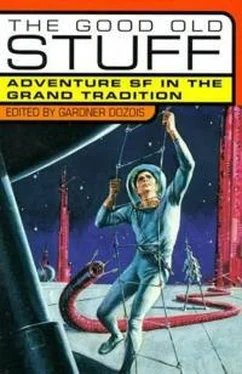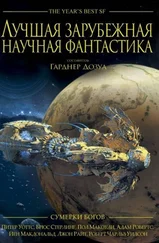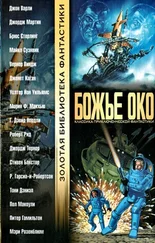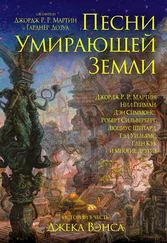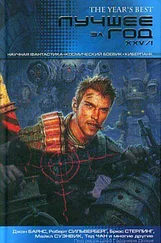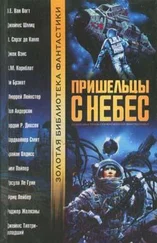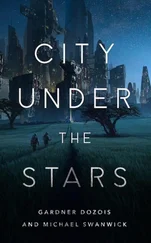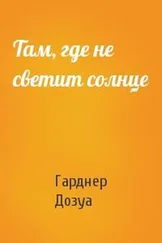Гарднер Дозуа - The Good Old Stuff
Здесь есть возможность читать онлайн «Гарднер Дозуа - The Good Old Stuff» весь текст электронной книги совершенно бесплатно (целиком полную версию без сокращений). В некоторых случаях можно слушать аудио, скачать через торрент в формате fb2 и присутствует краткое содержание. Год выпуска: 1998, ISBN: 1998, Издательство: St. Martin's Griffin, Жанр: Фантастика и фэнтези, на английском языке. Описание произведения, (предисловие) а так же отзывы посетителей доступны на портале библиотеки ЛибКат.
- Название:The Good Old Stuff
- Автор:
- Издательство:St. Martin's Griffin
- Жанр:
- Год:1998
- ISBN:0-312-19275-4
- Рейтинг книги:3 / 5. Голосов: 1
-
Избранное:Добавить в избранное
- Отзывы:
-
Ваша оценка:
- 60
- 1
- 2
- 3
- 4
- 5
The Good Old Stuff: краткое содержание, описание и аннотация
Предлагаем к чтению аннотацию, описание, краткое содержание или предисловие (зависит от того, что написал сам автор книги «The Good Old Stuff»). Если вы не нашли необходимую информацию о книге — напишите в комментариях, мы постараемся отыскать её.
The Good Old Stuff — читать онлайн бесплатно полную книгу (весь текст) целиком
Ниже представлен текст книги, разбитый по страницам. Система сохранения места последней прочитанной страницы, позволяет с удобством читать онлайн бесплатно книгу «The Good Old Stuff», без необходимости каждый раз заново искать на чём Вы остановились. Поставьте закладку, и сможете в любой момент перейти на страницу, на которой закончили чтение.
Интервал:
Закладка:
In the Forehall she stopped a passing girl, a very pretty girl, by her looks one of Durhal’s close kin, though Semley could not call to mind her name.
“Do you know me, maiden? I am Semley, Durhal’s wife. Will you go tell the Lady Durossa that I have come back?”
For she was afraid to go on in and perhaps face Durhal at once, alone; she wanted Durossa’s support.
The girl was gazing at her, her face very strange. But she murmured, “Yes, Lady,” and darted off toward the Tower.
Sernley stood waiting in the gilt, ruinous hall. No one came by; were they all at table in the Revel-hall? The silence was uneasy. After a minute Seen-ley started toward the stairs to the Tower. But an old woman was coming to her across the stone floor, holding her arms out, weeping.
“O Semley, Semley!”
She had never seen the grey-haired woman, and shrank back. “But Lady, who are you?”
“I am Durossa, Semley.”
She was quiet and still, all the time that Durossa embraced her and wept, and asked if it were true the Clayfolk had captured her and kept her under a spell all these long years, or had it been the Fiia with their strange arts? Then, drawing back a little, Durossa ceased to weep.
“You’re still young, Semley. Young as the day you left here. And you wear round your neck the necklace .... “
“I have brought my gift to my husband Durhal. Where is he?”
“Durhal is dead.” Semley stood unmoving.
“Your husband, my brother, Durhal Hallanlord was killed seven years ago in battle. Nine years you had been gone. The Starlords came no more. We fell to warring with the Eastern Halls, with the Angyar of Log and Hul-Orren. Durhal, fighting, was killed by a midman’s spear, for he had little armor for his body, and none at all for his spirit. He lies buried in the fields above Orren Marsh.”
Semley turned away. “I will go to him, then,” she said, putting her hand on the gold chain that weighed down her neck. “I will give him my gift.”
“Wait, Semley! Durhal’s daughter, your daughter, see her now, Haldre the Beautiful!”
It was the girl she had first spoken to and sent to Durossa, a girl of nineteen or so, with eyes like Durhal’s eyes, dark blue. She stood beside Durossa, gazing with those steady eyes at this woman Semley who was her mother and was her own age. Their age was the same, and their gold hair, and their beauty. Only Semley was a little taller, and wore the blue stone on her breast.
“Take it, take it. It was for Durhal and Haldre that I brought it from the end of the long night!” Semley cried this aloud, twisting and bowing her head to get the heavy chain off, dropping the necklace so it fell on the stones with a cold, liquid clash. “O take it, Haldre!” she cried again, and then, weeping aloud, turned and ran from Hallan, over the bridge and down the long, broad steps, and, darting off eastward into the forest of the mountainside like some wild thing escaping, was gone.
Moon Duel
Fritz Leiber
With a fifty-year career that stretched from the “Golden Age” Astounding of the 1940s to the beginning of the ‘90s, the late Fritz Leiber was an indispensable figure in the development of modern science fiction, fantasy, and horror. It is impossible to imagine what those genres would be like today without him, except to say that they would be poorer for it. Probably no other figure of his generation (with the possible exception of L. Sprague de Camp) wrote in as many different genres as Leiber, or was as important as he was to the development of each. Leiber was one of the fathers of modern “heroic fantasy,” and his long sequence of stories about Fafhrd and the Gray Mouser remains one of the most complex and intelligent bodies of work in the entire sub genre of “Sword & Sorcery” (which term Leiber himself is usually credited with coining). He may also be one of the best—if not the best—writers of the supernatural horror tale since Lovecraft and Poe, and was writing updated “modern” or “urban” horror stories like “Smoke Ghost” and the classic Conjure Wife long before the work of Stephen King engendered the Big Horror Boom of the middle 1970s and brought that form to wide popular attention.
Leiber was also a towering Ancestral Figure in science fiction as well, having been one of the major writers of both Campbell’s “Golden Age” Astounding of the ‘40s—with works like Gather, Darkness —and H.L. Gold’s Galaxy in the ‘50s—with works like the classic “Coming Attraction” and the superb novel The Big Time , which still holds up as one of the best SF novels ever written—and then going on to contribute a steady stream of superior fiction to the magazines and anthologies of the ‘60s, the ‘70s, and the ‘80s, as well as powerful novels such as The Wanderer and Our Lady of Darkness . The Big Time won a well-deserved Hugo in 1959, and Leiber also won a slew of other awards: all told, six Hugos and four Nebulas, plus three World Fantasy Awards—one of them the prestigious Life Achievement Award—and a Grandmaster of Fantasy Award.
Leiber’s relationship with Space Opera or the Space Adventure tale was complex and contradictory. His homage to Space Opera, the Hugo-winning novel The Wanderer —where attractive, seductive, (and rather dominatrix-like) alien Tiger Women in a planet-sized spaceship stop off in our solar system just long enough to demolish our moon for fuel, with disastrous consequences for the Earth—shows a genuine fondness and nostalgia for the form. but, at the same time, he used stock Space Opera cliches cunningly, to sharp satiric effect, in stories such as “The Secret Songs”—where a drug-dependent young husband, high on barbiturates and paraldehyde, hallucinates that he is being put to a nightly series of pulp-adventure space-operaish “tests” by his “mentor,” a Wise Old Crocodile From Beyond the Magnellanic Clouds—in a manner that seems to signify that he may have grown rather tired of the Interplanetary Adventure and impatient with its limitations (which was not an isolated opinion among the more intellectual writers of his day, just as it would not be among the radical new writers of the generation just about to rise to prominence—most of them strongly influenced by Leiber—who would collectively produce less adventure SF, particularly Space Opera, than any other comparable generational group of authors).
At the very least, when Leiber dabbled in Space Adventure, he insisted on doing some thing new—and often bizarre—with it, as in “A Pail of Air” or the surreal “The Big Trek.” So it will come as no surprise that the Moon that Leiber takes us to in the sly and incisive story that follows is not quite like any other writer’s conception of the place, or that the adventure that we have there is a quirky and surprising one, with unexpected consequences for even the simplest of actions ...
Fritz Leiber’s other books include The Green Millennium, A Spectre Is Haunting Texas, The Big Engine , and The Silver Eggheads , the collections The Best of Fritz Leiber, The Book of Fritz Lei’her, The Change War, Night Dark Agents, Heroes and Horrors, The Mind Spider , and The Ghost Light , and the seven volumes of Fafhrd-Gray Mouser stories. Much of this work is out of print, but the Fafhrd-GrayMouser stories are now being reissued in massive omnibus editions by White Wolf Borealis, the first two of which are Ill Met in Lankhmar and Lean Times in Lankhmar ; the most recent such volume is Return to Lankhmar .
First hint I had we’d been spotted by a crusoe was a little tick coming to my moonsuit from the miniradar Pete and I were gaily heaving into position near the east end of Gioja crater to scan for wrecks, trash, and nodules of raw metal.
Читать дальшеИнтервал:
Закладка:
Похожие книги на «The Good Old Stuff»
Представляем Вашему вниманию похожие книги на «The Good Old Stuff» списком для выбора. Мы отобрали схожую по названию и смыслу литературу в надежде предоставить читателям больше вариантов отыскать новые, интересные, ещё непрочитанные произведения.
Обсуждение, отзывы о книге «The Good Old Stuff» и просто собственные мнения читателей. Оставьте ваши комментарии, напишите, что Вы думаете о произведении, его смысле или главных героях. Укажите что конкретно понравилось, а что нет, и почему Вы так считаете.
